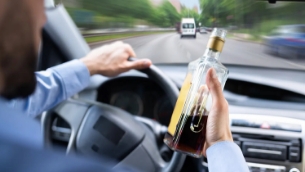How Can Parents Prevent Teen Driving Accidents?

Teen driving accidents can be a major source of concern for parents. These incidents not only bring emotional distress but also often lead to complicated legal situations, necessitating the involvement of Washington auto accident lawyers. However, parents can take proactive steps to significantly reduce the risk of accidents involving their teen drivers. This comprehensive guide will discuss various strategies parents can implement to ensure the safety of their teenage drivers.
Emphasize the Importance of Driving Education
Quality driving education is fundamental for safe driving. Parents should encourage their teens to enroll in comprehensive driving courses beyond basic driving skills and include thorough training on traffic laws and safety practices. These courses should ideally combine theoretical knowledge with practical, hands-on driving experience. Parents can reinforce this learning by regularly discussing safe driving habits, sharing experiences, and even quizzing teens on various driving scenarios. This continuous engagement can help ingrain safe driving principles in teens.
Set a Good Example as a Driver
Parents are the primary role models for their children, and this extends to driving habits. Parents can influence their teens' driving attitudes and practices by consistently demonstrating safe and responsible driving behaviors. This includes obeying speed limits, always wearing seatbelts, avoiding aggressive driving, and never using mobile devices while driving. Parents can subtly instill these behaviors in their teens by setting a positive example, creating a foundation for lifelong safe driving habits.
Establish Clear Rules and Expectations
Setting clear and consistent rules for driving is crucial in fostering responsible behavior in teen drivers. Parents should establish specific guidelines regarding where and when teens can drive, who can be in the car, and expected driving behaviors. These rules might include curfews, limits on the number of passengers to avoid distractions, and explicit instructions to avoid risky behaviors like speeding. It's also important to discuss the consequences of violating these rules, ranging from losing driving privileges to taking additional driving courses.
Discuss the Dangers of Distracted and Impaired Driving
Conversations about the dangers of distracted and impaired driving are essential. Parents should have open, honest discussions about the risks associated with texting while driving, using social media, driving under the influence of alcohol or drugs, and other distractions. These discussions should be age-appropriate but direct, highlighting the real-world consequences of such actions, including legal repercussions, the potential for accidents, and the role of entities like Washington auto accident lawyers.
Encourage Defensive Driving Techniques
Defensive driving is a skill that can significantly enhance a teen's safety on the road. Parents should encourage their teens to learn and practice defensive driving techniques. This includes being constantly aware of the surroundings, anticipating potential hazards, keeping a safe distance from other vehicles, and learning how to react calmly and safely in unexpected situations. Enrolling teens in defensive driving courses can give them the skills and confidence to navigate complex traffic situations safely.
Monitor and Limit Nighttime Driving
Nighttime driving presents additional risks due to reduced visibility and increased likelihood of encountering impaired drivers. Parents should closely monitor their teen's nighttime driving habits and consider setting limitations, at least during the initial years of their driving experience. This could involve setting specific hours during which teens cannot drive or requiring an adult to be in the vehicle during nighttime trips.
Utilize Technology for Supervision
Advancements in technology have offered new ways to monitor and supervise teen drivers. Various apps and devices can track a vehicle's speed, location, and even provide reports on driving behaviors. These tools can be invaluable for parents in keeping tabs on their teen's driving habits and intervening when necessary. However, balancing supervision with trust is important, ensuring that teens do not feel overly controlled or distrusted.
Regularly Maintain the Vehicle
Proper vehicle maintenance is key to ensuring safety on the road. Parents should ensure that their teen's vehicle is regularly serviced and maintained. This includes routine checks and maintenance of brakes, tires, lights, and other vital components. Involving teens in this process can also educate them about vehicle care and the importance of maintaining a car in good condition.
Preventing teen driving accidents involves:
- A combination of education.
- Setting a positive example.
- Establishing clear rules.
- Discussing the dangers of distracted and impaired driving.
- Encouraging defensive driving.
- Monitoring nighttime driving.
- Utilizing technology for supervision.
- Regular vehicle maintenance.
By adopting these strategies, parents can significantly contribute to the safety of their teen drivers. While accidents can still happen, and legal assistance from entities like Washington auto accident lawyers may be required, these preventive measures can go a long way in reducing the likelihood of accidents involving teen drivers.
Image Source: Google Images










